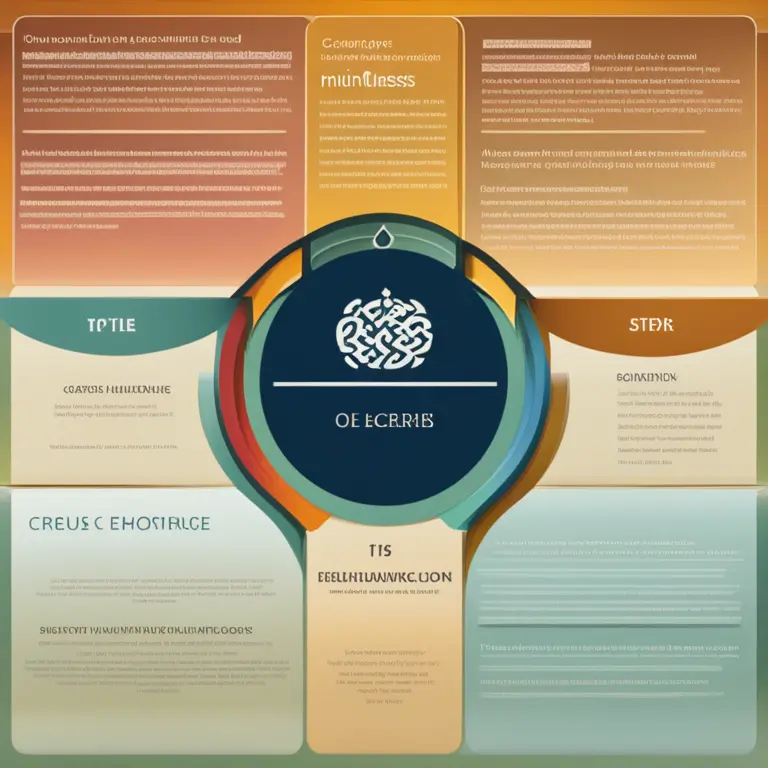
The Synergy of Mindfulness and Leadership
Cultivating mindful leadership to foster focus, clarity, and compassion in management practices.
article by Hina Kurosawa
Mindful Leadership in Modern Management
In an era where the pace of change is faster than ever, the role of leadership is undergoing a significant transformation. Mindfulness meditation, recognized for its benefits on individual well-being, has found a unique place within the realm of leadership development. But what exactly is mindful leadership? It's an approach that involves being mentally present and fully aware of oneself and the environment, allowing leaders to manage their reactions and decisions with greater clarity and compassion. By practicing mindfulness, leaders can improve their ability to navigate complex situations, enhance communication, and lead with a sense of purpose.

Cultivating Presence in Decision-Making
One of the core benefits of incorporating mindfulness into leadership is the cultivation of presence. A present leader listens actively and displays empathy, which is critical in team settings where collaboration is key. This skill not only improves interpersonal relations but also enables more thoughtful decision-making. When leaders are mindful, they are less likely to be reactive and more likely to respond thoughtfully to challenges, weighing the short-term and long-term implications of their decisions with a clear mind.

Enhancing Emotional Intelligence
Mindful leadership also plays a pivotal role in enhancing a leader's emotional intelligence. Self-awareness and self-management, critical components of emotional intelligence, are strengthened through regular mindfulness practice. Leaders who are emotionally intelligent can recognize their own emotional states, which empowers them to handle stress effectively and maintain a productive atmosphere within their teams. This empathic stance fosters a safe environment where feedback is encouraged, and resilience is built.

Building Resilience through Mindfulness
In contemporary business environments, adversity and stress are inevitable. A mindful approach to leadership enables individuals to build resilience amidst these challenges. The practice of mindfulness meditation regularly helps in developing a centered state of mind that can weather the storm of uncertainty. It strengthens a leader's ability to remain focused and composed, thereby setting a calm and confident tone for their team, even in turbulent times.

Mindful Leadership Training Programs
Recognizing the transformative impact of mindfulness on leadership, many organizations are now incorporating mindfulness practices into their leadership training programs. These programs are designed to help leaders integrate mindfulness into their daily routine, fostering a leadership style that's adaptive, innovative, and human-centric. Such programs often include guided meditations, mindfulness exercises, and practical strategies for dealing with the challenges of modern-day leadership.
Future Outlook on Mindful Leadership
As we look towards the future, the integration of mindfulness in leadership is becoming increasingly important. With growing acknowledgment of mental health in the workplace and the need for sustainable work practices, leaders who embrace mindfulness will set the standard for a more conscious and considerate approach to management. This shift is not just about enhancing productivity but also about creating a workplace that promotes personal growth, well-being, and a sense of shared purpose among all members of an organization.
Published: 1/18/2024
Modified: 1/18/2024
More predictions
Come back here soon to learn more about yourself and your future


Mindfulness Meditation As A Tool for Anxiety Relief
Discover how mindfulness meditation can be a powerful tool for anxiety relief, fostering a sense of peace and well-being through simple, guided practices.


Mindful Teaching: Meditation Practices for Educators
Discover the benefits of mindfulness meditation for educators seeking balance, enhanced concentration, and emotional wellbeing in a demanding profession.


Mindfulness & Meditation: Enhancing Cognitive Flexibility
Discover how mindfulness meditation can foster cognitive flexibility, improving your ability to adapt to new situations and think creatively.